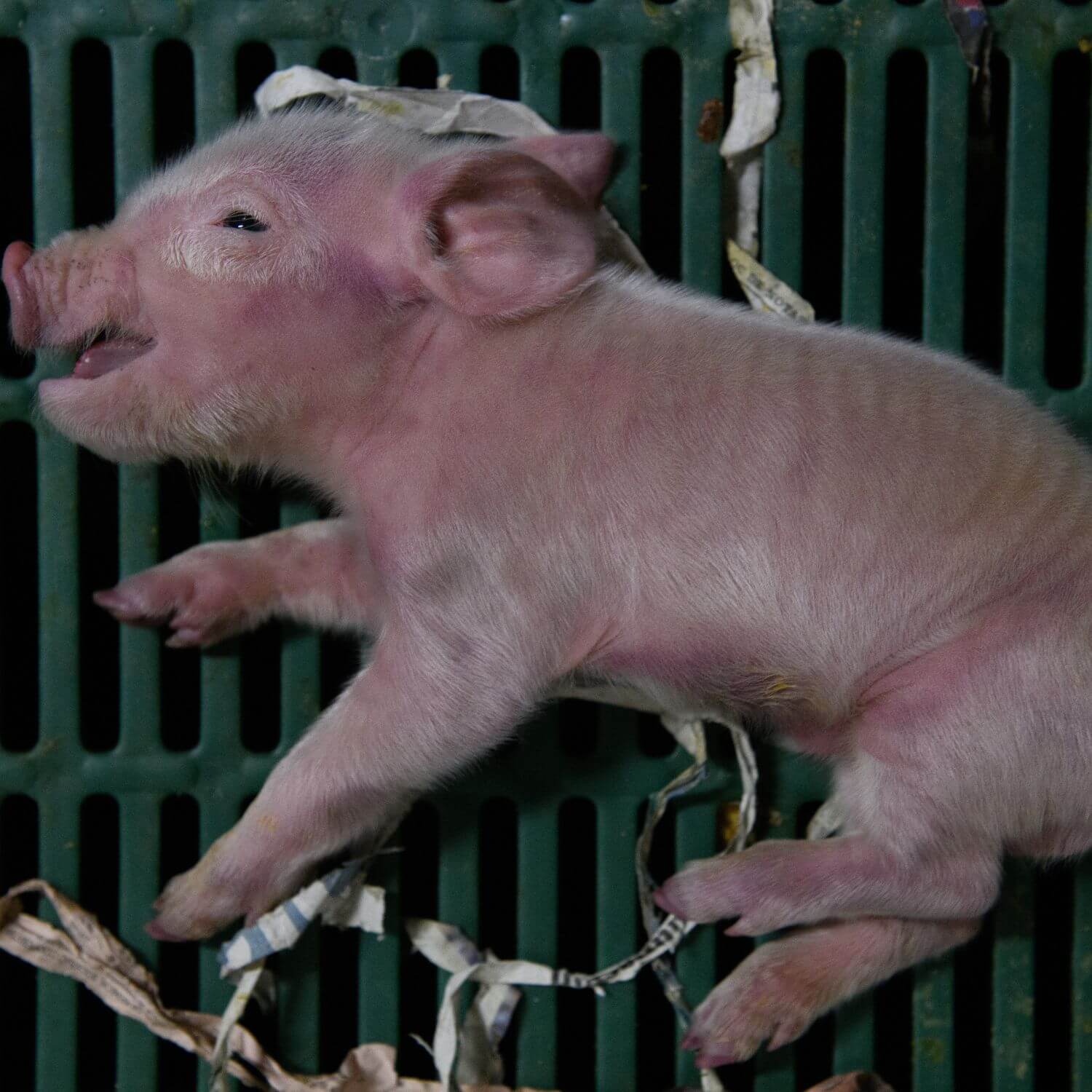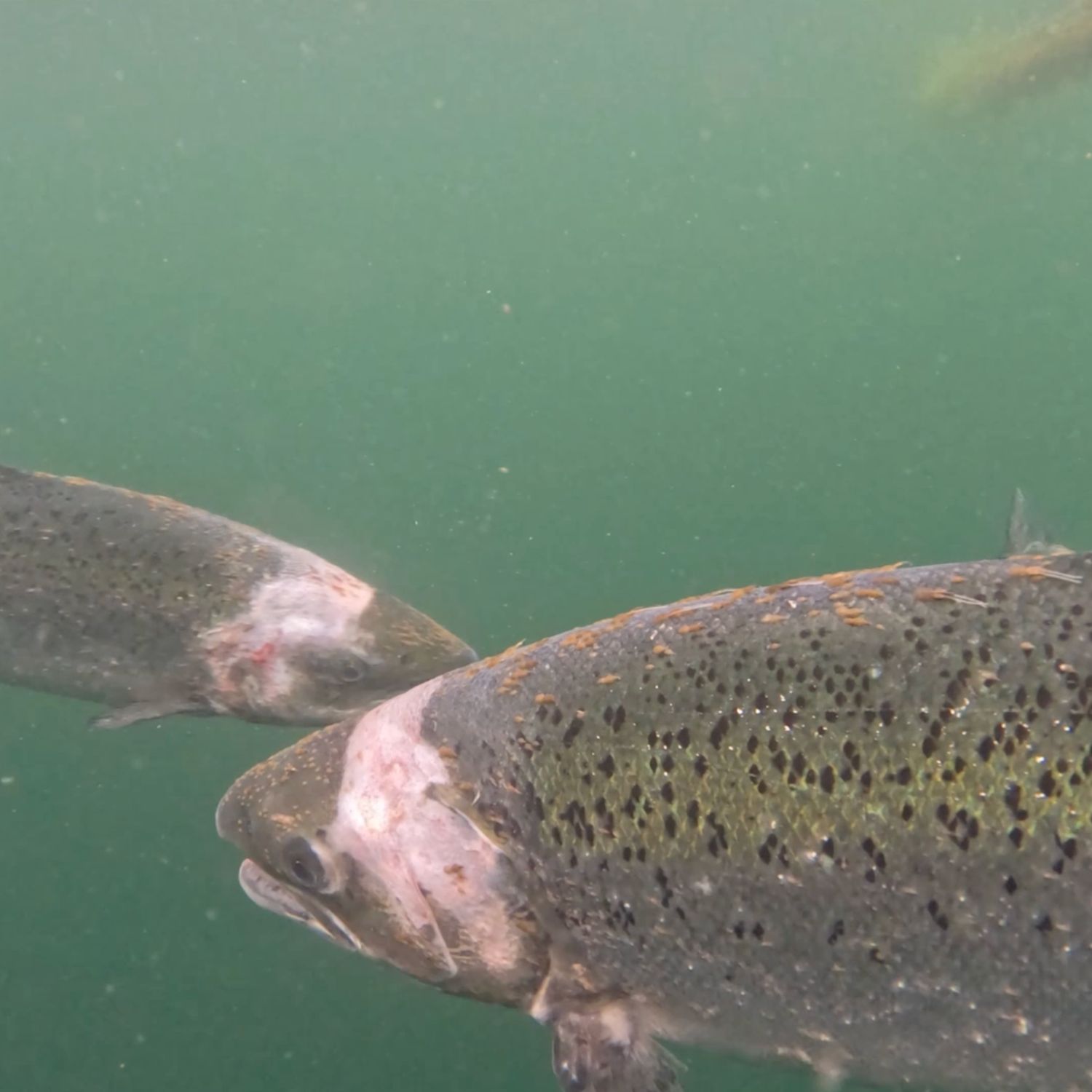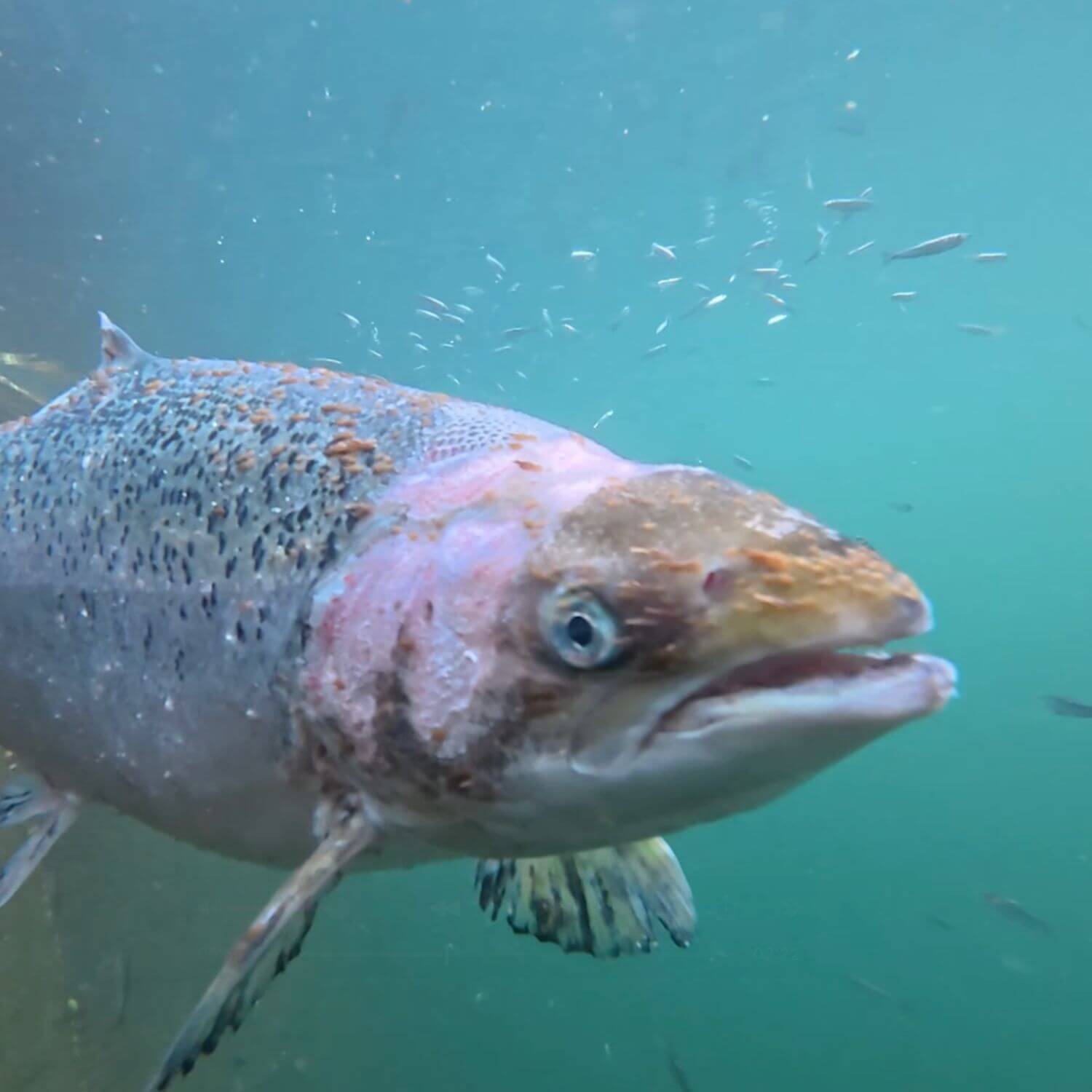Experts warn of pigs suffering from PTSD, “misery” and “apathy”, in report calling for ban on cages
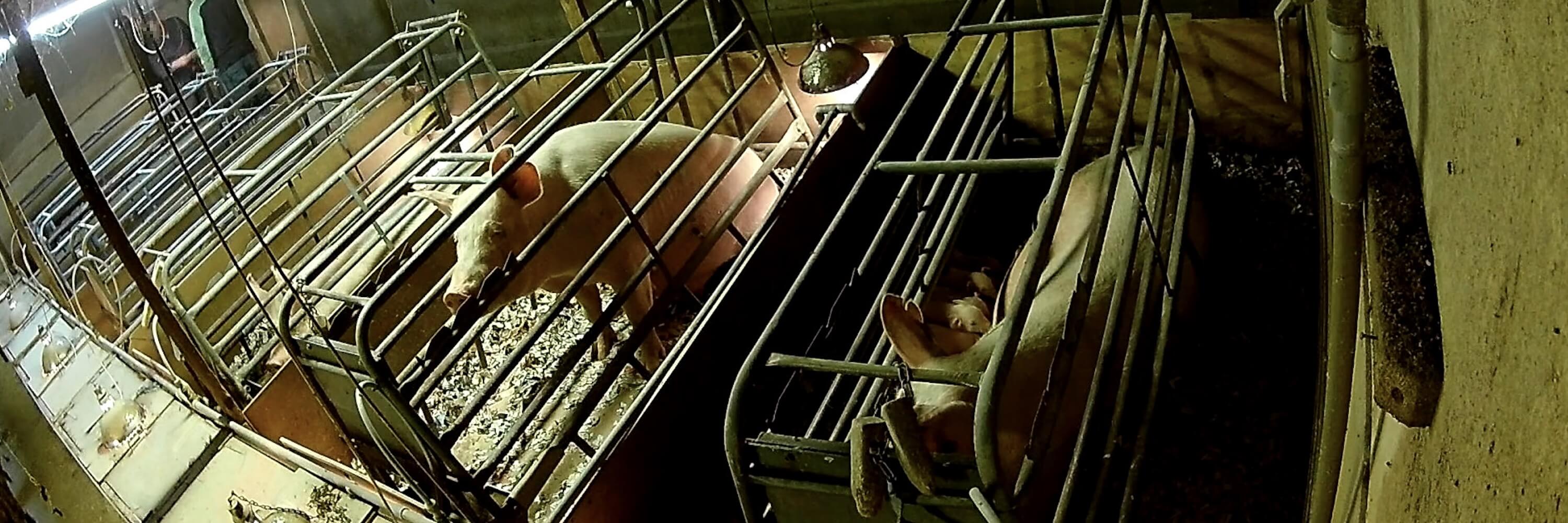
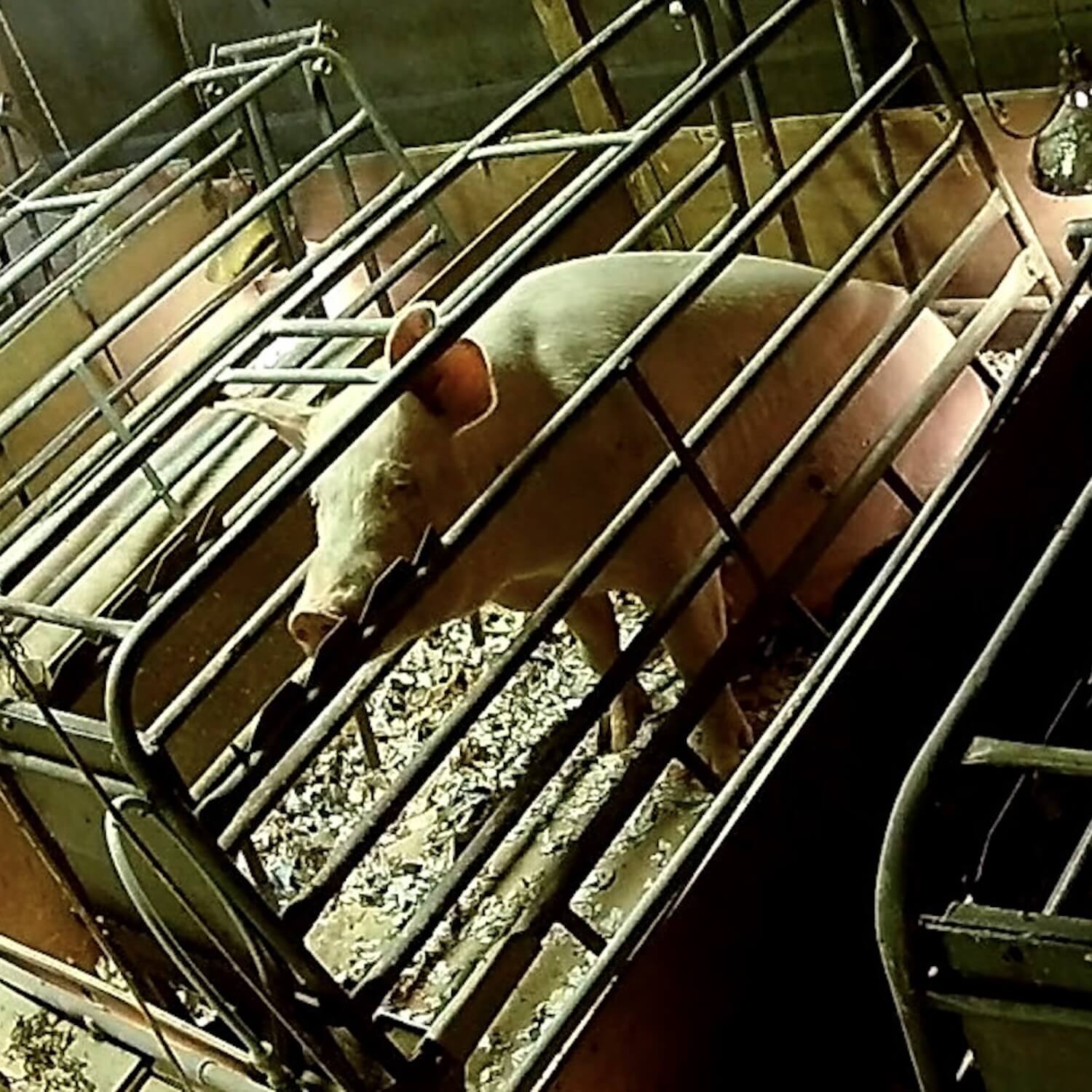
The report, Captive in Cages: The Silent Struggle of Mother Pigs, draws on expert testimony and centres around 120 hours of footage collected from a Red Tractor-certified farm in Devon, England. Three mother pigs were filmed continuously for five days, and their behaviours were qualitatively and quantitatively analysed by veterinarians and animal welfare specialists.
The report reveals:
- The three mother pigs could not turn around in their crates and spent over 90% of their time lying on uncomfortable slatted floors.
- One pig did not sit or stand at all for a full day.
- Another pig did not touch the enrichment provided (a plastic stick or wooden block) during the five-day period.
- The pigs bit the cage bars 127 times in five days, an indicator of extreme frustration and stress.
- None of the pigs were able to walk, root, or nest.
- The lights were on for every hour of every day for the entire recording period.
The report outlines a wide range of health issues faced by mother pigs in farrowing cages.
Experts described even simple movements – like shifting from lying to standing, and vice versa – as “challenging” for the pigs, noting that they often “repeatedly collide with the bars, which over time may exacerbate painful bruising”.
Pigs in farrowing cages can also suffer from painful pressure sores, prolapses, infections, and injuries – some so severe they require culling. Crates have also been linked to antibiotic reliance in piglets due to weakened immunity and poor gut development.
Experts denounce crates: pigs “very likely to suffer from PTSD”
With over two decades of experience working and researching in the field of animal research, Dr Helen Lambert has provided consultation to the Government’s Department for Environment, Food, and Rural Affairs; European Commission-funded consortium, aWISH, regarding animal welfare indicators within slaughterhouses; and is a Board Member for the Stakeholder Advisory Board for the Animal Welfare Research Network.
Upon analysing the footage, she said: “All three pigs spent most of their time lying down – considerably more time than postpartum pigs who can move more freely. Throughout the footage, the sows can be seen engaging in two key stereotypic behaviours: sham chewing and bar-biting… They are usually borne out of frustration and stress due to an animal’s inability to perform normal, instinctive behaviours. The mental state of these three pigs is severely compromised. Not only do these small crates prevent these sentient beings from moving freely and exercising control over their environment, but the measures legislatively required to ‘enrich’ their lives fail to do anything more than allow them to exhibit their clear frustration at their situation.”
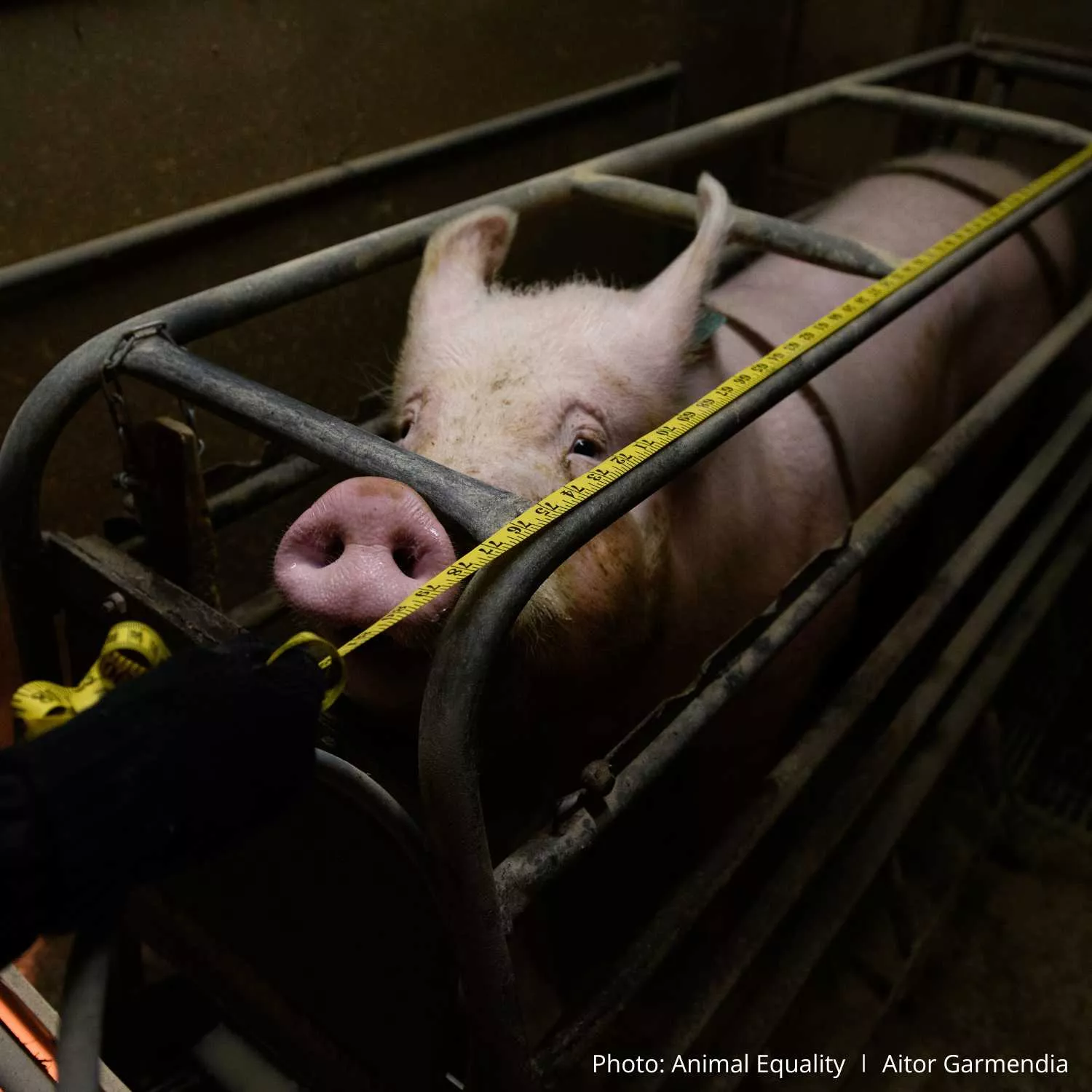
Former pig veterinarian, Dr Alice Brough BVM&S MRCVS, also shared insights in the report, referencing her work as a commercial pig vet in the UK industry between 2015-2019. She said: “Throughout years of farm work, veterinary practice, and subsequent years reviewing investigation footage, I have never seen enrichment adequate to satisfy their welfare needs provided to crated sows. Misery and apathy are very apparent working with crated sows”. Continuing, she added: “Conventional crate-based farrowing houses are at odds with what the government recommends regarding adequate enrichment material”.
Dr Steve McCulloch, European Veterinary Specialist in Animal Welfare Science, Ethics, and Law, and Fellow of the Royal College of Veterinary Surgeons, reviewed Animal Equality UK’s findings, said: “The pig industry has claimed that farrowing crates are necessary to reduce piglet mortality. But this is simply not true”. Questioning whether piglet mortality is used as a “smokescreen for low-cost production”, he added: “Piglet mortality is comparable and, in some cases, lower for UK outdoor sows… The principal ‘benefit’ of farrowing crates is not to reduce piglet mortality, but to minimise production costs”. Continuing, he added: “Breeding sows are very likely to suffer from post-traumatic stress disorder once they have been removed from the farrowing crates at weaning” and he believes that “Farrowing crates manifestly violate all five welfare needs under Section 9 of the Animal Welfare Act in England and Wales”.
According to the report’s authors, temporary crating systems – whereby the cages are still in place, but the cage doors are opened – are an “unacceptable compromise” and “ethically indefensible”.
Animal Equality UK says these systems fail to address core welfare issues and prevent pigs from expressing natural behaviours, like nesting. With piglet mortality often higher in ‘flexible’ pens than traditional crates, temporary crating may worsen outcomes rather than improve them.
The life of a crated pig: a cycle of suffering
Approximately 10 million piglets are bred and slaughtered annually in the UK, with around 200,000 pigs used for breeding confined in farrowing crates. These female pigs will spend nearly a quarter of their lives (22%) in extreme confinement. Artificially inseminated around 6-8 months of age, ‘breeding sows’ are forcibly impregnated and moved into group housing. The female pig will remain pregnant for around four months before giving birth to an average of 16 piglets; in 60% of cases, the pig will be placed into a farrowing crate days before giving birth. Around five days after weaning, the pigs are impregnated once again.
Pigs used for breeding are killed at around 3.5 years of age; naturally, a pig can live to the age of 20 or even older.
Public and political pressure mounts for change
Public opposition to farrowing cages is overwhelming, with 96% of British people opposing their use. Bans or restrictions are in place in other countries, including Sweden, Switzerland, and Germany, and the UK ranks ninth in its cage-free farming commitments.
The report adds to growing calls from the British Veterinary Association and other bodies urging an end to farrowing crates, and follows a Westminster Debate on 30th May led by Green Party Co-Leader, Adrian Ramsay, on animal welfare standards in farming. Adrian Ramsay MP said the use of farrowing crates “must be urgently reviewed… Pigs are widely regarded to be highly sentient animals, but they are forced to give birth and nurse their young while virtually immobilised. The European Union has committed to phasing out cages for all farmed animals by 2027, but a recent letter from the National Pig Association suggested another 20 years of suffering to phase them out”.
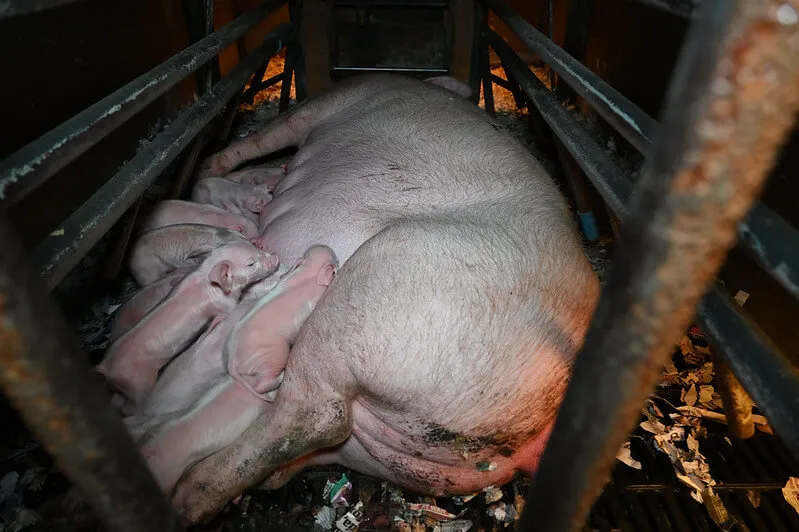
Labour MP, Irene Campbell, agreed, saying: “Those sows can spend almost a quarter of their adult lives in crates where they do not even have enough room to turn around. That is unacceptable”. Liberal Democrat MP, Sarah Dyke, added: “The Liberal Democrats have urged the Government to launch a consultation on the use of farrowing crates for pigs, and to end the use of cages for farm animals”.
Take action for mother pigs
Cages must be banned. Forcing intelligent mother pigs to eat, sleep, and defecate in such cramped, confining spaces is unimaginably cruel. This extreme confinement takes a devastating toll on the animals, who – trapped with no escape – inevitably become hopeless and traumatised. The Government must act now to end this senseless suffering.
But it’s important to remember that even in so-called ‘cage-free’ systems, pig welfare is far from guaranteed. When it comes time to slaughter, most pigs in the UK face one of the cruelest stunning methods – high-intensity CO₂ gas – which causes them to feel as though they are burning from the inside out.
If you truly care about pigs and want to make a real difference, leaving them off your plate and choosing plant-based alternatives is the most compassionate and powerful way to help. Every meal without meat is a step towards ending their suffering.
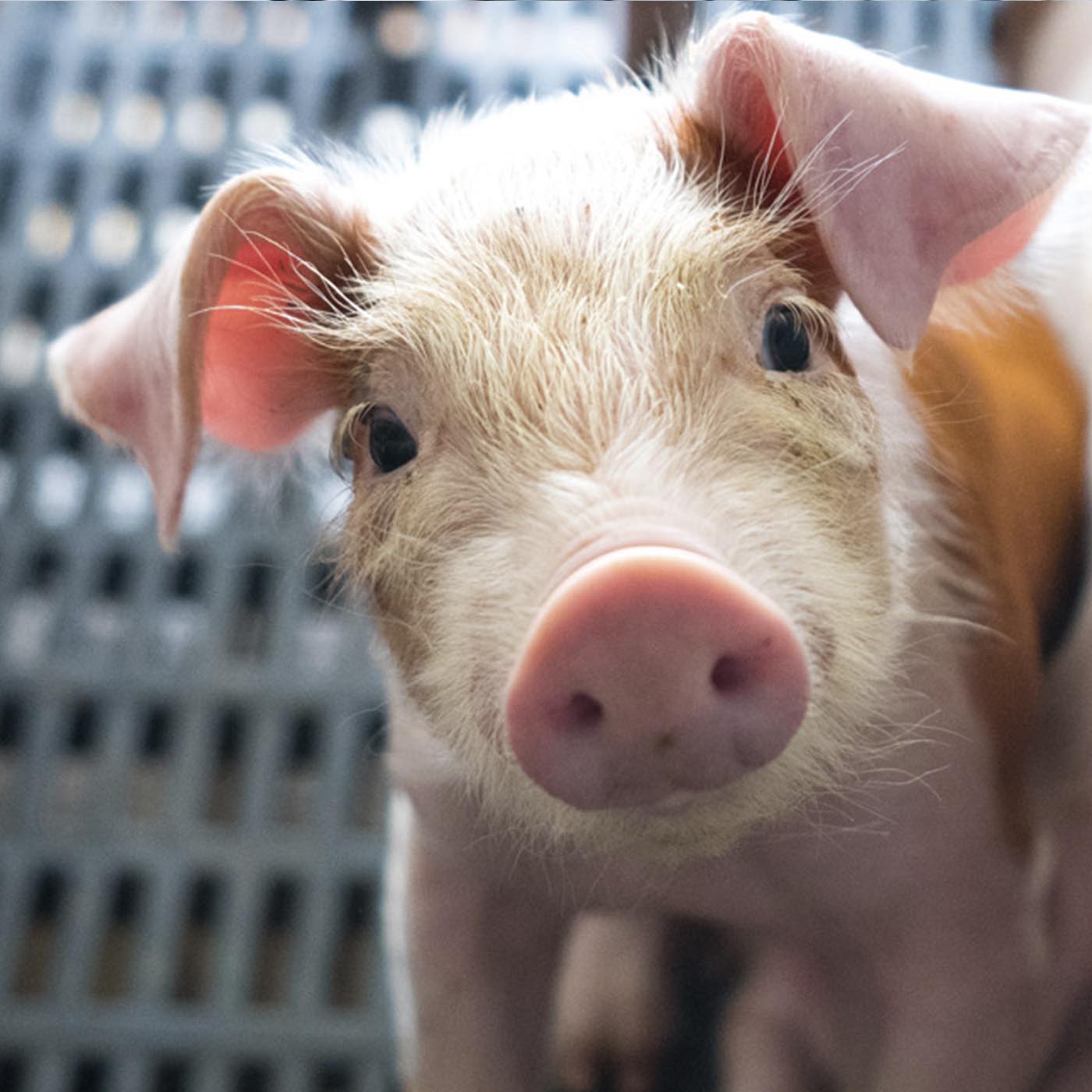
protect pigs
Pigs are highly social animals who are often considered smarter than dogs. You can protect these intelligent animals by simply choosing plant-based alternatives.

